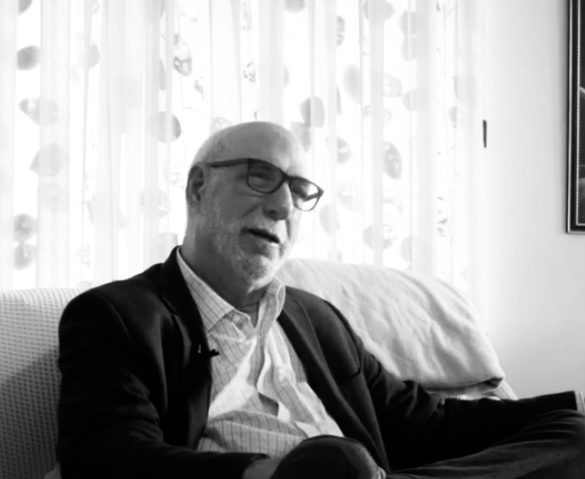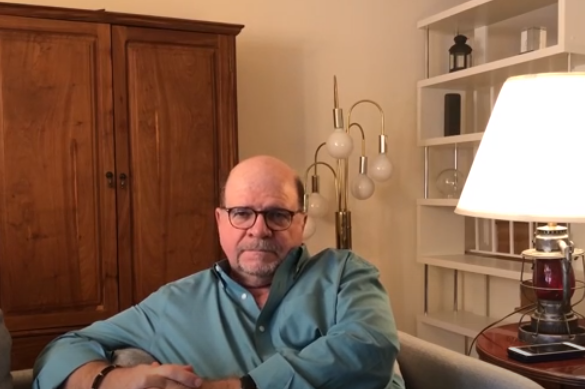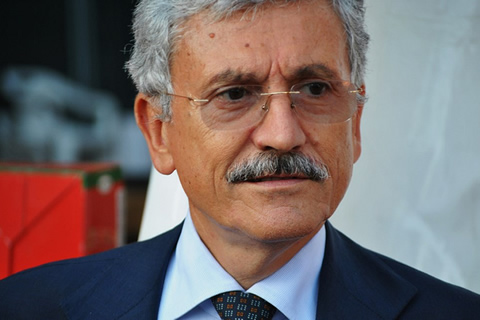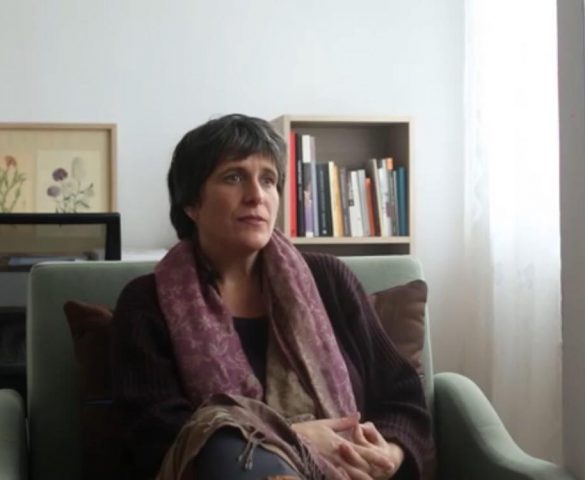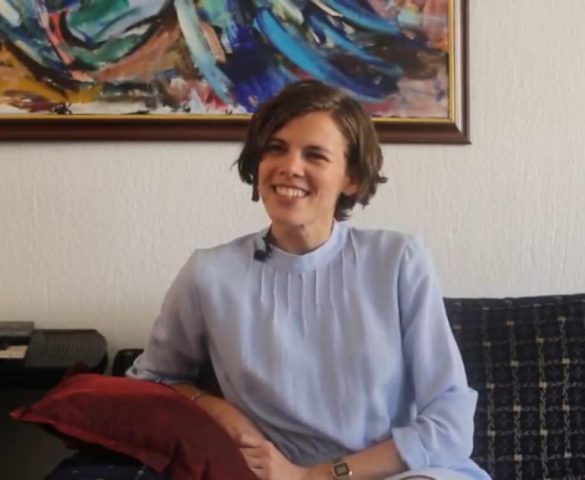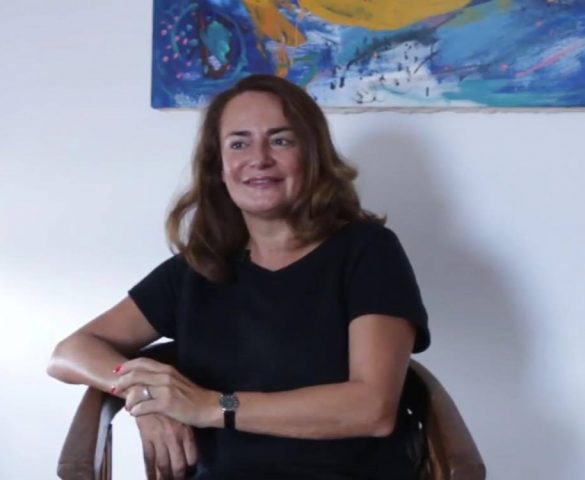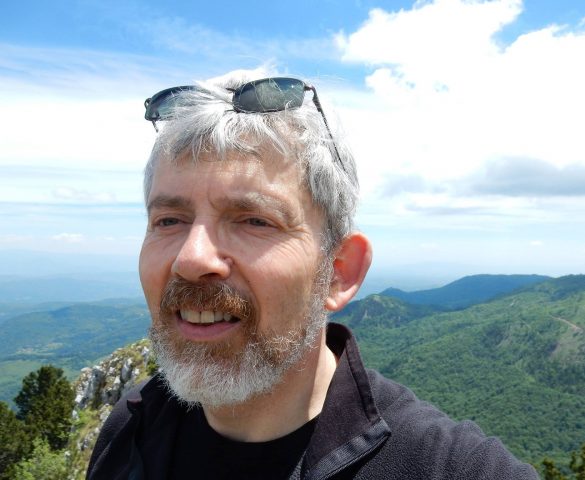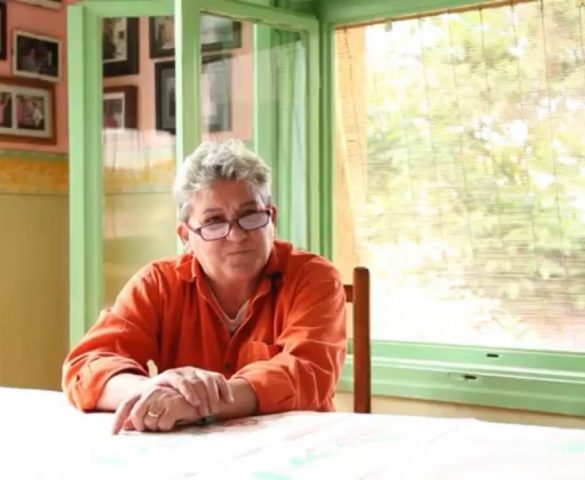I mentioned Sérgio Vieira de Mello, and he is the UN official who was killed in Iraq in 2003. And Sérgio had been the head of civil affairs in the old days, and I worked very closely with him in Goražde. […] And I… he knew I knew Kosovo. And so when he came to [Kosovo], he was named the ad interim Special Representative of the Secretary General. He wanted to put together a team, and it was a great team and he wanted me on the team. […] I went the next day, and I saw Sérgio and some others. And then he sent me to Prizren, and some of the people on that mission.
[…] there’d been reports that Prizren had been destroyed, or there had been a lot of bombing there. There had been in places like Zhur and Krusha e Madhe and Krusha e Vogël. But in Prizren itself, there really wasn’t that much. The Germans [peacekeeping forces] were already there. There were all these journalists I’d known from the old days, American journalists. Roy Gutman, who was the guy who discovered the camps in Bosnia in 1992. Roy was there. […]
And it was really anarchic at the time. And people were coming in, and the UN or the… I guess it was the UN who’d announced this, but I don’t know… we had tried to create a situation where the refugees wouldn’t return for a month or two while we sorted things out, you know, while we established ourselves. They, of course, came back immediately. So while I was going in, we’d see these columns of, I assume, Serbs leaving. There were Albanians coming in from Kukës and from Skopje. And… and the first days were really really rough.
We took Georg Simmel’s notion of “stranger,” who “comes today and stays tomorrow,” the potential wanderer, who, “although he has gone no further, has not quite got over the freedom of coming and going,” – to better identify those natives of other countries who came to Kosovo especially after 1999, and lived in Kosovo for an extended period of time, and/or currently live in Kosovo. They are officials of international institutions, staff of non-governmental organizations, business people, journalists, teachers, etc. They are commonly known as “the internationals.” They are not simply foreigners, they are part of Kosovo itself: they participate in local life in different fields and varying positions of power, and they are also co-creators, with Kosovars, of a transnational space which is cultural, social and political. In the words of Simmel, they are not unlike “inner enemies,” whose membership within the Kosovo society involves both being outside and confronting it. By collecting their life histories, we aim to shed light on the complicated status of outsiders/insiders and on what constructs this divide.
Mark Baskin
Politics and public policy professorChristopher Dell
DiplomatWhen I first got to Kosovo, it was my first experience having my own security detail. It was the first country I had lived in where that was necessary, and these were very high-end professionals, military units that have gone on to become quite famous for other reasons. But I never felt, maybe because of their presence, I never felt unsafe. I think there was the potential risk that someone might try something, you know, so that’s the reason they were there. But as far as the Albanian people were concerned, they would have protected me long before my security detail needed to. I never felt unsafe at all in that way. There was a landmine risk, unexploded ordinances and all of that, so you knew you had to be careful where you walk, and going out into unknown meadows was not something very advisable. No, but overall, I liked it from the very start. I felt good being there. We were welcomed, obviously, I felt the work was rewarding. God knows it was challenging. Especially in the beginning, it was like living in this single room. […] it was great, it was exciting, it mattered, it was front and center of Washington’s attention. I mean, for a professional career diplomat, it was not a better place to be.
Massimo D’Alema
President of the Fondazione Italianieuropei…in some ways the NATO intervention was right because it put an end to those wars, even though the result that came out was a delicate equilibrium. It was a military action that put an end to the war, it did not declare war, the war was there, there were dead, we intervened in a conflict that was already there, it was politically right. It was legitimate. […] I thought then and I continue to think now that it is legitimate even though the action of NATO did not find the authorization of the United Nations Security Council, fundamentally because of the Russian veto, nevertheless the EU as such had accepted, let’s say, the reasons of the NATO military action and expressed its support to this military action, its political support.
Elizabeth Gowing
WriterSo, it’s called Travels in Blood and Honey. Becoming a Beekeeper in Kosovo. So this one really tells the story of, from I first arrived in Kosovo in 2006 to 2008 like when we left Kosovo, the last chapter is us leaving Kosovo. When we thought that, you know, Rob had a job back in England and we thought that our time in Kosovo was coming to an end. Little did we know (laughs) that was just the beginning. But… that’s, that’s, it’s got a very different feel in my opinion because it’s about becoming a beekeeper but it’s also about learning not just beekeeping. But, learning Kosovo’s history and its traditions, its food. You know, it’s got recipes in the book for what to make with the honey.
It’s a very sweet, very lyrical book. I think it’s kind of, it’s a lot about the landscape, the countryside, the villages, and, and, it’s kind of a love story about me, you know, falling in love with Kosovo. And, and, so I, you know, I love that book because it’s, it really tells that, that journey. But, I remember there was one review of it that said it was uncritical of Kosovo and I suppose that’s true, I mean, I didn’t want to be critical, and, but, also I perhaps hadn’t got, you know, deep, I hadn’t met the community in Fushë Kosovë to see some of the problems and frustrations. So, yeah, it’s a love story, when you’re in love with someone, you’re not critical (laughs).
Cristina Marí
JournalistHere I am a foreigner. I am an expat […] even though I have lived here, now it’s been five years, I have learned the language […] My partner is from here […] And I don’t see myself as an expat or as a foreigner, I always find the word expat charged and loaded with status and privileges […] especially here in Kosovo, where these is such a big international community […] I often get asked here, ‘Do you work in EULEX?’ or, ‘Do you work in KFOR?” It’s either one or the other. They never think that I might work in a civil society organization […]
And that also comes with ideology, because these institutions have policies or have implemented work here that has some consequences or, and did or not fulfill the expectations of society here. So we’re coming back to how I feel here […] I always feel that I must be careful because I’m not seen as a person from here […] And I always think, if people know me, they, they will understand what I’m trying to do and they will not see it as a, or I hope they will not see it as something, as a patronizing approach. Or as a foreigner trying to tell them how things work, ‘Because she is a foreigner, in her country things are different, things work and she can…’ No, actually, in my country things don’t work that well either (laughs).
Seda Pumpyanskaya
Former UNMIK official for public information in KosovoThe first very physical feeling in Kosovo, because of the way the conflict developed, was a wall. This is a wall, and the international community is not going to overcome it. And that was politically a different feeling, because you work in very difficult circumstances but you kind of try, or here you understand that’s a wall, and you can’t do anything, I am talking about the relationships of Albanians and Serbs, honestly. And that determined a lot of the political world, work. Anyway, safety, coming back to safety. I wasn’t quite sure how I am going to be seen as a Russian, because of all the biases. Well, I kind of thought, ok, the Albanians are going to say, ‘She is Russian, she is Russian.’ Am I safe? Am I going to be well taken? Am I going to be able to do my job? What? What? These are the questions, which are kind of in your head, which are normal human.
So, my reaction was a funny one, because standing, checking in, I don’t know, somewhere, I don’t know, there was like a short line, I think I turned my head and there was a guy standing behind me and asking, ‘Are you also coming?’ I said, ‘Yes.’ ‘Where are you going to stay in Pristina?’ And I told him, ‘Why don’t we live together?’ I don’t mean live together in any terms, but I guess it was my protective side, like, why not, I don’t know, couple with somebody. That was a very nice feeling, because it turned up in a very unexpected community, and I am going to talk about this international community in Kosovo. The guy, my friend Antonio, was from Brazil. He was working with IT and with the website, that was just developing. Well, I told you in Bosnia that was the first website that we created. Yes, actually I got to Kosovo because somebody whom I met in Bosnia, Simon Haselock, who was the spokesperson, the head of public information for the Office of the High Representative, moved there and he called me and that how the transfer happened. […] I have Spanish background in the sense of language I speak six language, and I studied a lot of Spanish literature. We ended up in a nice company of these three Latin American guys and myself. Lots of fun, one was Peruvian, one Chilean, Antonio was from Brazil, and myself.
Jolyon Naegele
Journalist/UN officialWhat grabbed me by far and what, what haunts me to this day, was having been at Vërmica crossing, Morina on the Albanian side, but meters from, from the border, and seeing these masses of people come across. […] I had gone out first thing in the morning and the place was empty, there was one Albanian officer leaning on the border rail, sort of looking into Kosovo and it was no traffic in either direction of course, and I was there with a driver and an interpreter and I said, ‘So, where is everyone?’ […] We went back to Kukës after he told us, ‘Look, they don’t, the Serbs don’t let anyone out until after 10:00 in the morning, come back around 11:00 or so, you’ll see the scenes.’ And sure enough it was right out of the BBC, Sky or, or CNN. A line of cars back towards Prizren, sneaking to, up to the border and […] the cars were packed with people, the maximum number that could squeeze in, plus belongings and these people were completely traumatized, it was obvious at first sight. There was an older woman from the Swiss Red Cross in uniform, who reached into each car and stroked the arms of each person in the car and assured them in Albanian that they were safe, that they were no longer in Serbia, Yugoslavia, they were in Albania, they were safe.
[…] They were also traumatized, they had seen piles of bodies, dead people, outside, on the side of the road, where the Serb police had taken people, soldiers, paramilitary had taken people out of cars, off buses, young men and simply shot them. […] These people then came across and some somehow started, somehow expected that their relatives who had already left would be there waiting there for them. They were disoriented, I remember them, just, some women just putting their bags down the middle of the field and looking around and really not knowing where to go, what was next, there was no reception center, anything up there. Others came across on tractors, one told me that he had thought he could sit it out with the family in Gjakova but that morning, 3:00 in the morning, Serb forces showed up in the house next door, took the neighbor out into the garden, shot him and he said, ‘That’s it, I couldn’t take it any longer,’ packed bags, packed their bags, got in the car and left within minutes.
Antonella Giorgioni
RestaurateurAnd in 2000 [2004], when they burned the church? I was here. That was another really dirty business. I am sorry, I must say this. At 7:30pm I hear some grenades, all the young people, nobody was at home, they were all outside. At 7:30pm I decide to close the restaurant, send all the kids home, until about midnight I stayed here. At 2am a call arrives from the Italian Embassy, they say, ‘Antonella, run, run there is a big fire, there is a big fire next to your restaurant.’ Before going back home, before midnight, I saw the priest run away with his daughter, fortunately the police pick them up and took them away. At 2am the Embassy calls, ‘Run run, there is a big fire.’ I come here alone, I take all the garbage cans, I fill them up with water because as the crow flies, this is an old house, as the crow flies it is two hundred meters from the church, and the bell tower was on fire, it was really a huge fire.
